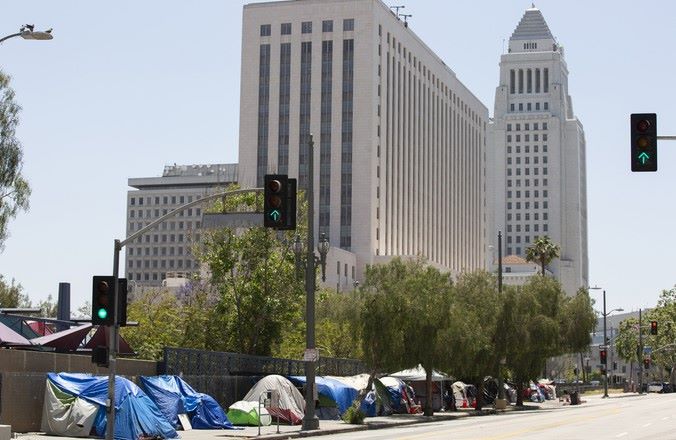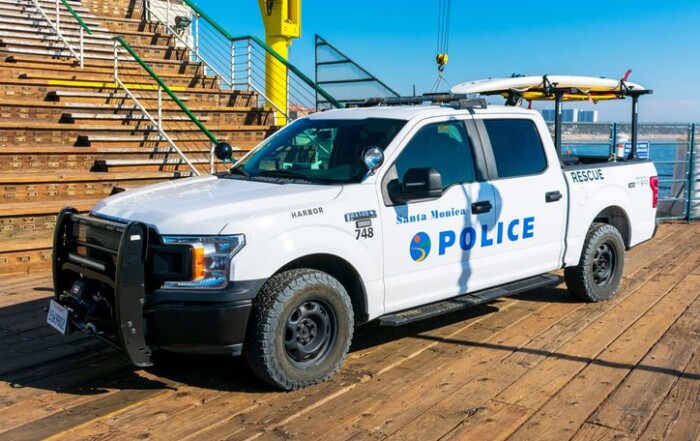Last week, in a special Wednesday night session, the Malibu City Council discussed the proposed fiscal 2023-2024 budget as proposed by staff. It will be the first of four sessions for the public, either at the council or council committee level, to hear and respond to the proposal. These sessions will also allow the council to provide feedback and direction to city staff as they all work toward a finalized budget.
April serves as a time for budget analysis and development along with Wednesday night’s budget workshop. In the city staff’s presentation, it was made known that Malibu’s total revenue stands at $95.72 Million, with the General Fund at $54.82 Million, or 57.3 percent of the total pie. Special revenue funds are at $35.56 Million, or 37.1 percent of the total. A series of other, smaller funds make up the remaining 5.5 percent of revenue.
The largest components making up city revenue are property, hotel, and sales and use taxes, making up 84 percent of revenue. Licenses and fees add another 8.3 percent, with fines and forfeitures and income from other governments rounding out General Fund revenue.
The city is also expected to close 2023 on June 30 with $90 Million in General Fund reserves, and projects it will close 2024 with $78.8 Million.
On the expenditure side, expenditures were reported to be $107.12 Million, with the General Fund and special revenue funds once again making up the bulk of expenditures. However, there is around $11 Million in General Fund capital listed in this section, so the fact that expenditures outstrip revenues should not suggest an operating deficit.
Within the General Fund, spending is dominated largely by city management, staff salaries, and public safety spending, at $30.1 Million, or 54.1 percent. That’s followed by Environmental Sustainability Programs at $8.15 Million (14.7 percent), Planning at $5.69 Million (10.2 percent), Public Works at $5.25 Million (9 percent), Community Services at $4.51 Million (8.1 percent), and Disaster Response at $1.92 Million (3.4 percent).
Various departments took turns presenting their budgeted programs and goals. When it came to public safety, Mayor Pro Tem Steve Uhring inquired about enhancing sheriff’s department patrols to cut down on speeding through Pacific Coast Highway (PCH). Staff acknowledged the need to add funding that isn’t currently allotted to increase the number of officers to enforce speed limits. Councilmember Doug Stewart suggested that the budget include a “chart of allocated staff” so the city would know what officers and patrols were in town on any given day. Public Safety Director Susan Dueñas affirmed that it’s early in the budget process but is confident that a clearer direction on staffing will emerge.
Councilmember Marianne Riggins inquired about city costs surrounding California Highway Patrol (CHP) presence in Malibu and whether the city should be budgeting for a more regular presence rather than a lower budget number for “on-call” services. Dueñas was pessimistic that services could be enhanced, saying of CHP understaffing, “The last few times that I’ve requested CHP, they haven’t been able to give me any bodies. I’ve requested again for Memorial Day Weekend, and they’re not sure. They’re trying.”
On the topic of city services and programs, Stewart encouraged staff to conceptualize new, permanent facilities where more program offerings could take place and used the examples of a paddleball court or arts facility. He says he’s been hearing talk of the need for this from city commissioners who serve needs like parks and the arts. “If there is some way for us to start the process of mapping out what we want and where we want it, that way – when we’re sitting here at this time next year – we can begin to figure out how to pay for it,” said Stewart.
Councilmember Paul Grisanti agreed this was a good idea and suggested some money be set aside so that if conceptual plans are in fact discussed, the city could hire some outside help to assist in the design.
Planning Director Richard Mollica was on hand to present the Planning Department budget outlook, and the issue of fee waivers for outside agencies was discussed, with Grisanti asking for an example of when and for whom the city would grant a waiver. Mollica said that under a new law, an agency like the Mountains Recreation & Conservation Authority (MRCA) could go to the Coastal Commission for a conditional use permit (CUP) to build, say, a public staircase for beach access if the city refuses to waive or only reduces its fee for a CUP.
Mollica’s initial presentation also included news of a planning software overhaul, to which Stewart said with a smile, “Every time I’ve done that in my business career, it’s almost put us out of business,” later adding, “I wish you luck on it.” Mayor Bruce Silverstein suggested creating a system that somehow automates immediate waivers for projects like this to ensure the City of Malibu is able to maintain jurisdiction over the permitting process.
With regards to the Public Works budget, questions emerged about the increased cost to develop it since it was first imagined in 2017. Public Works Director Rob Duboux explained that in the intervening years, construction costs have dramatically increased, not helped at all by supply chain problems that began at the height of the COVID pandemic.
Mayor Pro Tem Uhring was complimentary of Duboux and his team for storm response this year, saying, “I don’t think anybody was expecting what we got, and you did a very nice job of taking care of it.”
On May 2, the Administration & Finance Subcommittee will work through budget issues as well as determine General Fund grants, and a public hearing will then take place on May 22. The Budget then must be approved at the June 26 meeting of the city council before the fiscal year begins on July 1.
Photo by the Author
Stay informed. Sign up for The Westside Voice Newsletter
By clicking submit, you agree to share your email address with Westside Voice. We do not sell or share your information with anyone.








